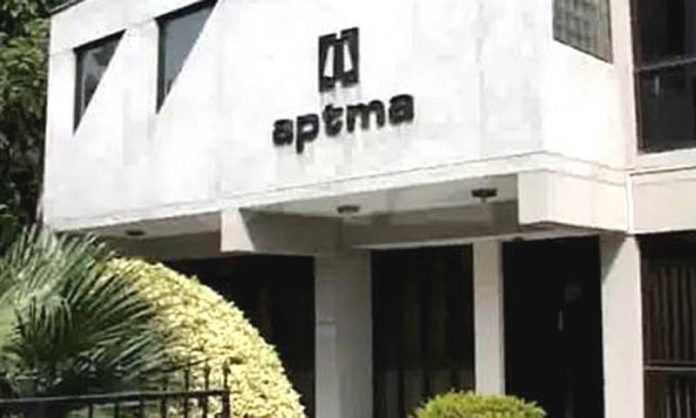ISLAMABAD: All Pakistan Textile Mills Association (APTMA) has put forward its proposal for the upcoming budget (FY 2018-19), demanding zero per cent custom duty on import of coal to be used for energy generation, removal of custom duty on Polyester Staple, Fibre etc.
APTMA, while strongly demanding zero percent custom duty on import of coal to be used for generation of energy in its proposals for next budget (FY) 2018-19 has said that the exemption of custom duty on import of coal for energy generation will reduce the cost of doing business and help those units which were forced to shut their production activity will become operative again. Also, to address the energy shortfall in Pakistan which has affected the industrial production of the country tremendously, APTA demanded the removal of duty at 5 per cent on import of coal for energy generation.
APTMA has also proposed to impose a 15 per cent regulatory duty on the import of synthetic yarns entering into the domestic commerce of Pakistan, separate HS code for speciality polyester staple fibres like moisture absorbent, cat ionic dyed polyesters, capillary action, hygenic fibres as they are presently clubbed together with normal domestically produced PSF. Similarly, elastoneric fibres and yarns like lycra, spandex may be exempted from customs duty as they are integral parts of spinning and not produced locally. Also demanded a separate HS code of 8 digits to specifically identify the export of bleached/dyed absorbent surgical cotton which is a finished product. A separate HS code for this item will enable the exporters to compete with exporters in the international market and apply for rebate under the PM Scheme of Duty Drawback.
Rationalising the proposed changes, APTMA said the removal of custom duty will help regain market share. Yarns are being used for textile products domestically consumed by the low income group. Also, bleached/dyed absorbent surgical cotton is a completely finished product and used as an absorbent surgical cotton. Exports of this product face immense competition from competitors in India, China and Turkey in the international market. So, to remain in the export market our exporters require bifurcation of the said item from the regular HS code for grey cotton and issue a separate HS code for this product, said APTMA.
APTA also said that as the industry imports accessories of plants as and when required, imposition of import duty at standard rate has increased the cost of operations while withdrawal of the custom duty will help in reducing cost of doing business.
Presently there is 5 per cent custom duty on import of coal HS code 2701.1900. Imported price of coal at the end of FY 2016-17 was $90/MT which is now imported at $103/MT i.e more than 14 per cent increase in the price of imported coal. In addition to an increase in price in the international market, Pakistani Rupee has been devalued by about 10 per cent. Simply, there is a 25 per cent increase in price as compared to the last financial year, APTMA said.
Giving a picture of the position after suggested changes, APTMA said the removal of duty on import of Polyester Staple Fibre, which is one of the basic raw materials, will help Pakistan regain its share in the world market. Likewise, imposition of Regulatory Duty on import of synthetic yarns in particular PP and PV of chapter 55 (5509 to 551) will help in revival of closed industrial units manufacturing these yarns, while separate a HS code of Bleached/Dyed Absorbent Surgical Cotton will enable exporters to compete in the market and can be enlisted in DLTL scheme.
It is worth mentioning here that currently there was 7 per cent customs duty on import of Polyester Staple Fibre (HS code 5503.2010 in addition to around the existing 0 per cent anti-dumping duty, while the world trade has rapidly been shifting to man-made fiber from cotton.
Import of synthetic yarns in particular PP and PV has surged to more than 50,000 tons annually under various HS codes of chapter 55 (5509 to 551), which has adversely affected the domestic commerce of Pakistan, and as a result, many spinning units have ceased their operations.




